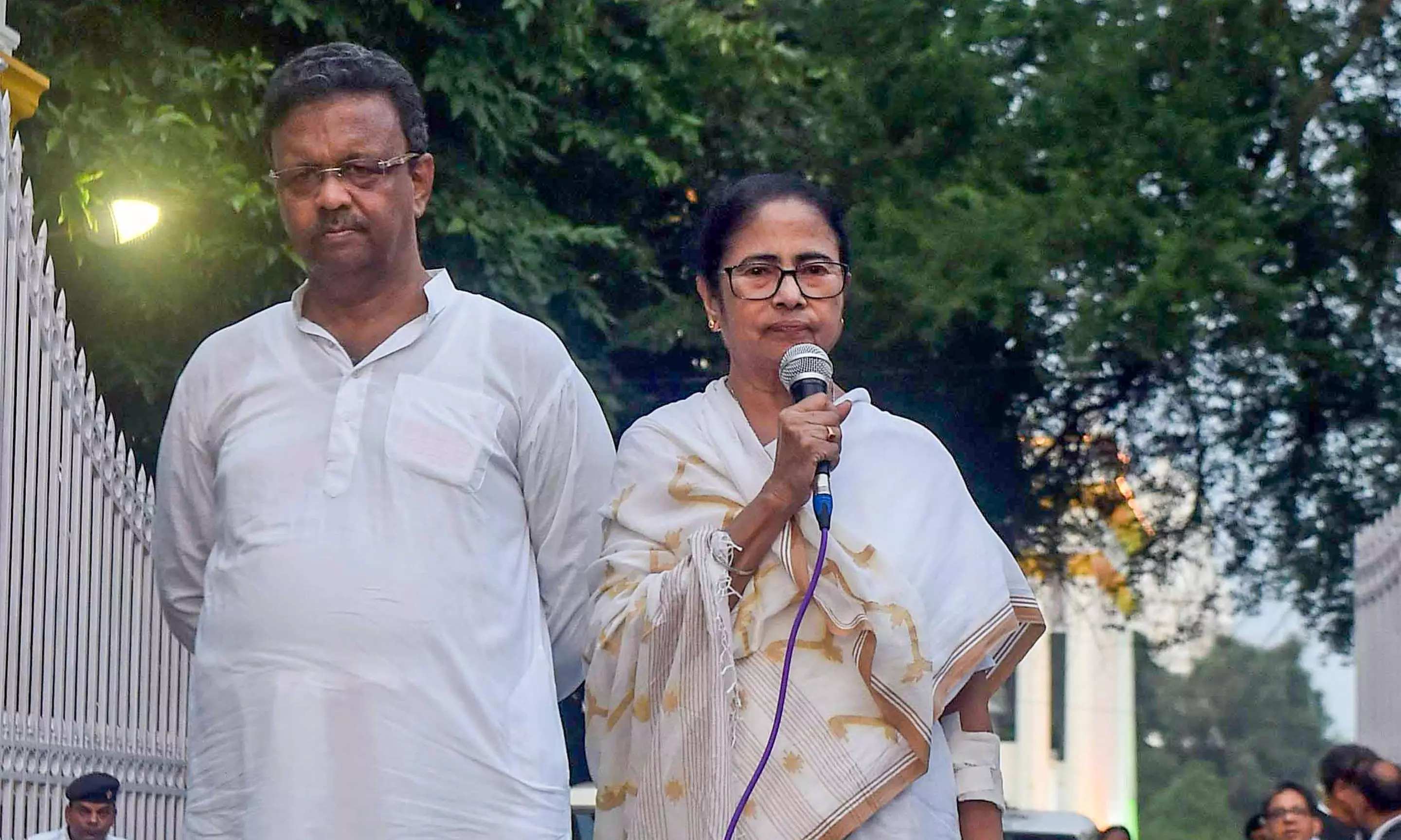
- Home
- India
- World
- Premium
- THE FEDERAL SPECIAL
- Analysis
- States
- Perspective
- Videos
- Sports
- Education
- Entertainment
- Elections
- Features
- Health
- Business
- Series
- In memoriam: Sheikh Mujibur Rahman
- Bishnoi's Men
- NEET TANGLE
- Economy Series
- Earth Day
- Kashmir’s Frozen Turbulence
- India@75
- The legend of Ramjanmabhoomi
- Liberalisation@30
- How to tame a dragon
- Celebrating biodiversity
- Farm Matters
- 50 days of solitude
- Bringing Migrants Home
- Budget 2020
- Jharkhand Votes
- The Federal Investigates
- The Federal Impact
- Vanishing Sand
- Gandhi @ 150
- Andhra Today
- Field report
- Operation Gulmarg
- Pandemic @1 Mn in India
- The Federal Year-End
- The Zero Year
- Science
- Brand studio
- Newsletter
- Elections 2024
- Events
- Home
- IndiaIndia
- World
- Analysis
- StatesStates
- PerspectivePerspective
- VideosVideos
- Sports
- Education
- Entertainment
- ElectionsElections
- Features
- Health
- BusinessBusiness
- Premium
- Loading...
Premium - Events

x
The wildfire spread of about 300 spontaneously mobilised protests across Kolkata and in the districts over the horrific 'Abhaya' rape and murder is an unequivocal condemnation of the government headed by Mamata Banerjee, who is Chief Minister, Home Minister and Health Minister, too. Image: PTI
Till now, women voters have studiously avoided blaming Mamata; they have put individuals and police in the dock.; the 'Abhaya' RG Kar rape-murder case is different
The emotional connection between Mamata Banerjee and the public, especially women voters in West Bengal, has grown threadbare since her extraordinary ascent to power in 2011, when she first became Chief Minister.
Fully conscious of the danger, the Trinamool Congress founder-leader is now faced with the greatest political challenge of her career. She needs to retain the trust she worked hard to earn over years of almost superhuman effort against the once formidable CPI(M)-led Left Front, headed first by the charismatic Jyoti Basu followed by the iconic Buddhadev Bhattacharya, who passed away recently.
It's an ultimatum
The wildfire spread of about 300 spontaneously mobilised protests across Kolkata and in the districts over the horrific rape and murder of a trainee doctor at RG Kar Medical College and Hospital on August 9 is an unequivocal condemnation of the government headed by Mamata Banerjee, who is Chief Minister, Home Minister and Health Minister, too.
The protest call to Reclaim the Night for women who are at their most vulnerable at night is a metaphor. The demand “We want Justice” is not limited to a call for better investigation by the police, better security and safety for women in work places, better administration and no absurd denials or botched cover ups by heads of institutions like the principal of RG Kar, it is an ultimatum.
And, Mamata knows it. Women who poured out in tens of thousands on the night of August 14 served her notice that her “party-government”, in which bureaucrats and police men were bondsmen working at the behest of local so-called leaders or power brokers, was no longer acceptable.
Repeat offences
The protest over the RG Kar incident was also about the routines of bullying, intimidation, bureaucratic corruption and indifference to people’s problems, the money-making rackets of musclemen and petty party men patronised by bigger fish that had become every day experiences. The numbers conveyed the message that this has to end.
Mamata also knows that the usually impatient and violent public gave full support to the young doctors and their seniors who went on strike at RG Kar and other teaching hospitals across the city.
The crisis of the healthcare system it created as hospital outdoors and emergency wards remained shut or barely open did not provoke angry mobs to demand resumption of services.
Lumpen, not public
The goons who entered RG Kar Medical College and Hospital and trashed the Emergency Ward and other wards, sweeping aside policemen who were defenceless in the confrontation on August 14 night, were not the public. These were lumpen who were deployed to crash barriers and destroy public property.
Mamata knows this. She also knows that the police posted at the hospital including for the protection of the scene of crime were like paper cutouts, who ran away because they were overpowered.
The growing list of failures and lapses in the rape-murder incident indicates that the Mamata government is not in control of the bureaucracy, the police and people responsible for managing public institutions and services. For all of these failures, the Chief Minister is accountable.
Little patience left
Her constituency of women, be they the urban poor or the rural poor, grateful for the Lakshmir Bhandar monthly cash transfer or beneficiary under some other government scheme, adding up to a whopping nearly 2 crore voters, cannot be bamboozled, taken for granted or denied justice if they demand it.
She knows it and knows full well that since 2011, they have been extraordinarily patient and given her the benefit of doubt, that she is not accountable for all the wrongdoings of her party leaders and the government. That they have run out of patience is what she fears most.
Up till now, women voters have studiously avoided blaming Mamata and her government. They have put individuals and the bureaucracy and the police in the dock.
This time, it is different. By advancing the day of her “protest” rally to demand justice for the RG Kar incident victim, Mamata has revealed that she is running out of time to salvage the political loss she has personally suffered.
Botched up cases
Recovering from this is not going to be easy. Mamata has a long history of botching the management of sensitive cases, starting with the 2012 Park Street gang rape that she initially dismissed by victim shaming calling it a "shajano ghotona,” a staged incident, and then the barbaric murder and gang rape of a college student in Kamduni in 2013.
Both incidents had the public out on the streets in protest, just as “Abhaya’s” death galvanised women to organically mobilise.
She also needs to recall the impact of the now almost forgotten case of Rizwanur Rahman, in which the top most echelons of the city’s police were suspected of conniving with the business family to which his Hindu wife belonged to intimidate him.
In the 2007 incident, then chief minister Buddhadev Bhattacharya was eventually forced to remove five police officers to redeem his badly damaged reputation. The Rizwanur case had the city out on the streets protesting against the CM and the police. It was the start point of the rupture between the loyal public and the Left Front that it had voted to power for seven consecutive five-year terms.
Ma-Mati-Manush
Women have been central to Mamata's political success. Her slogan as she entered the last phase of her fight against the CPI(M) in 2008 was “Ma-Mati-Manush” –women, land and people.
Between now and 2026, when the next state Assembly elections are due, Mamata has to tackle perhaps the most difficult political challenge of her career. She has to defend herself against anti-incumbency and the perceptions that have become rooted about her, bolstered by a relentless Opposition narrative of her as corrupt, conniving and communal, playing the Muslim appeasement card to win elections.
(The Federal seeks to present views and opinions from all sides of the spectrum. The information, ideas or opinions in the article are of the author and do not necessarily reflect the views of The Federal.)
Shikha Mukerjee is a political commentator for print, digital and television. She was political editor of The Times of India in Kolkata.
Next Story


